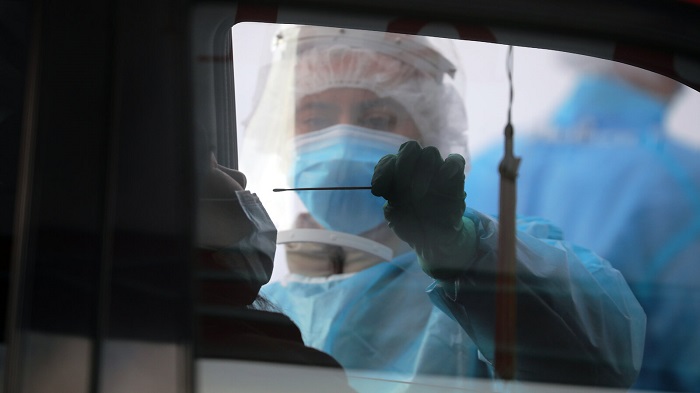Study finds SARS-CoV-2 may remain active for longer than recommended quarantine period
A new study has detected that SARS-CoV-2, the virus that causes COVID-19, can infect a person for more than 200 days in an atypical case.

Washington [US]: A new study has detected that SARS-CoV-2, the virus that causes COVID-19, can infect a person for more than 200 days in an atypical case. The study has been published in the 'Frontiers in Medicine Journal'.
The atypical case of infection by SARS-CoV-2 was part of a study involving 38 Brazilian patients followed on a weekly basis between April and November 2020 by researchers affiliated with the Pasteur-USP Scientific Platform, a partnership between France's Pasteur Institute, the University of Sao Paulo (USP) and Oswaldo Cruz Foundation (Fiocruz) in Brazil. The patients were followed until they tested negative twice or three times consecutively by RT-qPCR.
The study was supported by FAPESP. It served as an alert regarding the risk of limiting quarantine for COVID-19 patients to seven, ten or even 14 days after they test positive, as initially prescribed by protocols to combat the disease. It also reinforced the significance of vaccination, social distancing, and mask-wearing. "Of the 38 cases we tracked, two men and a woman were atypical in the sense that the virus was continuously detected in their organism for more than 70 days. Based on this result, we can say that about 8 per cent of people infected by SARS-CoV-2 may be able to transmit the virus for more than two months, without necessarily manifesting any symptoms during the final stage of the infection," said Marielton dos Passos Cunha, first author of the article.
The study was conducted while he was a postdoctoral intern at the Pasteur-USP Scientific Platform. "We wanted to know if a period of 14 days was really long enough for the virus to stop being detectable. We concluded that it wasn't. It can take a month for a patient to test negative, and in some cases included in our study the patients remained positive for 71 to 232 days," said Paola Minoprio, one of the coordinators of the Platform and principal investigator for the study.
This is not the first evidence that the virus can remain active for longer than expected even in patients with mild symptoms. In early 2021, researchers at the University of Sao Paulo's Institute of Tropical Medicine (IMT-USP) in Brazil analyzed 29 samples of nasopharyngeal secretion from patients who tested positive for COVID-19.
The material was collected at a public primary health centre on the tenth day after the onset of symptoms and inoculated into laboratory-grown cells. In 25 per cent of the cases, the viruses present in the samples were capable of infecting the cells and replicating them in vitro. In theory, therefore, other people could be infected if they came into contact with droplets of saliva expelled by 25 per cent of these patients at the time the material was collected. (ANI)
 Dynamite News
Dynamite News